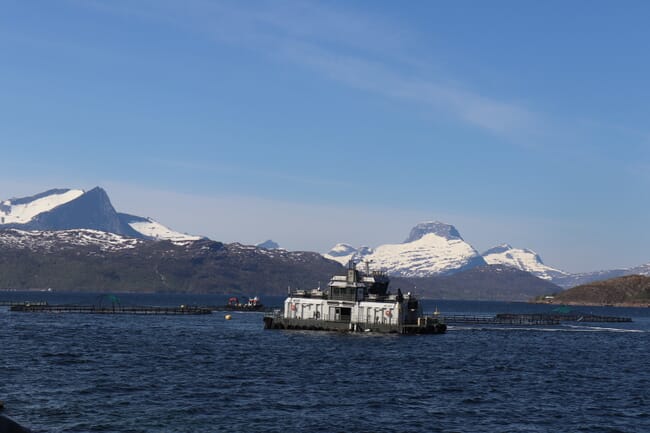The World Benchmarking Alliance (WBA) has published its second Seafood Stewardship Index today, which assesses and ranks 30 of the world’s most influential seafood companies.
Of the aquaculture companies listed Mowi scores the highest (46.1 out of 100), being second only to Thai Union. The company gains praise for its efforts in addressing ecosystem impacts, animal welfare, medicine use and feed ingredient sourcing, but is criticised for the number of its salmon that have escaped.

Meanwhile Cooke is the worst performing aquaculture company, scoring an abysmal 0.7 out of 100, putting it in 28th place. Its low ranking is "due to lack of disclosure on most key topics across all measurement areas" while it is also criticised for a lack of information relating to protecting basic human rights and ethical standards and its failure to disclose a sustainability strategy with time-bound targets.
Human rights concerns
In general, WBA says that its data suggest that even those seafood companies who have commitments to protect human and labour rights are not translating these into action.
"Ninety-seven percent of the benchmarked companies lack a due diligence process – the most basic action that can be taken to start protecting their people," states the report.
"Only Thai Union Group, the number one company in the ranking, has demonstrated that it has a such a process in place to identify, assess and act on human rights risks and impacts in both its own operations and supply chain," it adds.
Moreover, of the 30 seafood companies assessed by WBA, only eight have commitments to monitor and ensure decent working and living conditions on-board vessels, a key issue in the industry, especially on distant water fishing fleets. Fishing is one of the most dangerous occupations in the world, so the health and safety of on-board workers must be made a priority for the industry.
Helen Packer, lead seafood stewardship index at WBA, said: “It’s all well and good for companies to say they’re against practices such as forced labour, but we need to see these words turn into action such as robust due diligence and grievance mechanisms to assess and address risks in both their operations and supply chain.”
When it comes to environmental impact of fisheries and aquaculture, the Seafood Stewardship Index suggests that most companies are taking action, by trading products from sources that are certified or engaged in improvement projects. However, how much progress has been made is unclear due to imprecise reporting. For example, several companies do not disclose how much product is certified versus improving towards certification, which mean different levels of sustainability.
Detailed disclosure of companies' activities across their entire portfolio is the only way to identify where improvements are most needed. If not, there is a risk they only focus on the low hanging fruit and leave behind the most challenging parts of the sector, according to WBA.
The 5 top performers in the Seafood Stewardship Index 2021
Ranking |
Company |
1 |
Thai Union |
2 |
Mowi |
3 |
Nueva Pescanova |
4 |
Nomad Foods |
5 |
Nutreco |
In this iteration, Thai Union retained its number one ranking, demonstrating leading practice on traceability and social responsibility topics.
The list was unveiled at today's Toykyo Sustainable Seafood Summit, so special mention was given to Japanese seafood firms.
According to WBA, since 2019 Japanese companies have strengthened their commitment to traceability, the backbone to any sustainability and legality claims of seafood products. Three Japanese companies - Kyokuyo, Maruha Nichiro and Nissui – are members of the Seafood Business for Ocean Stewardship initiative, which has pledged to work towards the adoption of the Global Dialogue for Seafood Traceability standards. The overall industry picture suggests more ambition is still required. Targets, while present, often lack a time frame and 26 percent of the companies are yet to commit to traceability.
“As an industry so dependent on healthy ecosystems, it makes sense that companies are investing in sustainability strategies,” adds Packer. “We need clear reporting of progress and companies must be transparent about the complexity of the issues at hand. Only then can we have productive conversations about how to ensure a sustainable future for the industry.”



